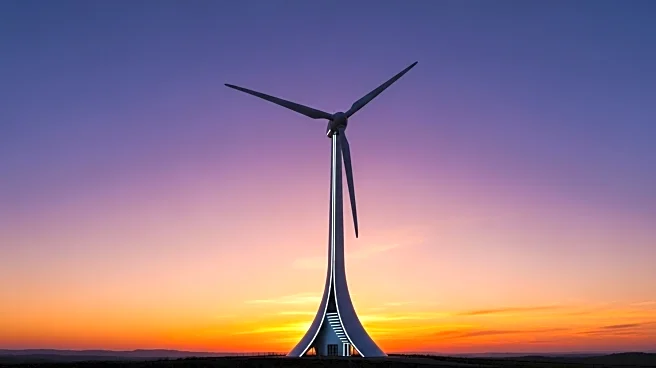What's Happening?
Clean energy developers are awaiting guidance from the Treasury Department regarding new Foreign Entity of Concern (FEOC) rules introduced by the One Big Beautiful Bill Act. These rules expand restrictions initially set by the Inflation Reduction Act, affecting tax credits for clean energy projects with ties to foreign entities from China, Russia, North Korea, or Iran. Developers are concerned about the complexity and administrative burden of these rules, which could impact the eligibility for tax credits like the 45X advanced manufacturing credit, 45Y production credit, and 48E investment credit. Legal experts highlight the challenges in identifying prohibited foreign entities due to intricate ownership and debt structures.
Why It's Important?
The FEOC rules have significant implications for the U.S. clean energy sector, potentially increasing compliance costs and legal risks for developers. These restrictions could deter investment in solar and wind projects, as investors may opt for production tax credits over investment tax credits due to the risk of recapture. Smaller developers may face disadvantages due to limited resources for ensuring supply chain compliance. The industry is also adjusting to new guidelines on project commencement, which could affect the timeline and financial planning for clean energy projects.
What's Next?
Developers are pushing to commence construction on projects before the end of 2025 to avoid some of the new FEOC restrictions. The Treasury Department is expected to release further guidance to clarify these rules, which could influence strategic decisions in the clean energy sector. The industry is closely monitoring these developments to adapt to the evolving regulatory landscape and mitigate potential risks.
Beyond the Headlines
The FEOC rules reflect broader geopolitical tensions and the U.S. government's efforts to reduce reliance on foreign entities in critical sectors. This move could lead to long-term shifts in supply chain strategies and investment patterns in the clean energy industry. The emphasis on compliance and diligence may also drive innovation in monitoring and reporting mechanisms within the sector.










